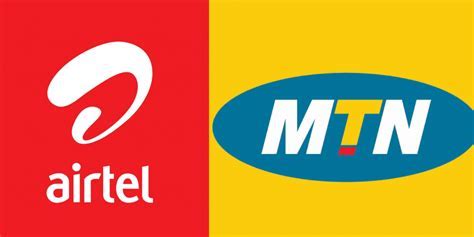Despite resilient revenue growth, telecommunication companies are cutting back on their foreign exchange exposure as the sharp drop in the naira continues to result in significant financial losses.
MTN Nigeria Communications Plc and Airtel Africa Plc decreased their total foreign exchange exposure to $100 million in the first half (H1) of 2024 from the $966.6 million recorded by December 2023. This amounts to a $966.6 million reduction in FX debt.
The telcos assert that this decrease is essential to minimizing the losses brought on by currency volatility.
The naira depreciated from N471/$ to N1,384/$ by June 2024 as a result of the Central Bank of Nigeria’s (CBN) intention to unify the nation’s foreign exchange market in June 2023.
The N563.20 billion in revenue gains that MTN and Airtel announced for the first half of 2024 were completely erased by this depreciation.
MTN, the biggest telco in Nigeria in terms of subscribers, saw a 32.83 percent growth in income from N1.16 trillion in H1 2023 to N1.54 trillion in H1 2024.
Nevertheless, the business reported a N519.1 billion loss after taxes. In the same vein, Airtel Nigeria, an Airtel Africa affiliate, revealed a 35.29 percent rise in naira revenue from N518.08 billion in H1 2023 to N700.90 billion in H1 2024. The company’s dollar-denominated revenue dropped to $522 million from $1.07 billion in only a single year, notwithstanding this growth.
The Worldwide Telecom Industry Association, GSMA, claims that following years of steady expansion, the financial performance of Nigeria’s mobile business has slowed down.
According to Gbenga Adebayo, chairman of the Association of Licensed Telecom Operators of Nigeria (ALTON), “both MTN and Airtel have declared significant foreign exchange (FX) losses in Nigeria, and the stress is linked to them alone.”
MTN and Airtel have reduced their foreign exposure to counteract these FX losses in the face of growing income. MTN decreased the amount of outstanding letters of credit (LC) it had as of December 2023 from $416.6 million to $100 million in H1 2024.
Reducing its leveraged contract (LC) has lessened the impact of future naira depreciation and related financing expenses on the company’s operations, even if the telco’s realized forex losses in the first half of 2024 were N310.5 billion.
“We have made significant progress in reducing the outstanding letters of credit (LC) US$ obligations, which contribute to the volatility in our earnings through forex losses,” stated Karl Toriola, the chief executive officer of MTN Nigeria.
“As a result of our expenditure optimisation and increased FX liquidity in the market, we lowered the balance of outstanding LC commitments ahead of schedule to around US$100 million by the end of June 2024. This was reduced from the US$416.6 million disclosed in December 2023 and funded by restricted cash holdings kept in naira to satisfy the LC obligations.”
The parent company of Airtel Nigeria, Airtel Africa, has also paid off its holding-level external debt, which was putting it at risk from exchange rate changes. The 5.35 percent guaranteed senior notes that matured in May 2024 were redeemed, according to the telco.
The statement read, “This $550 million bond repayment was made exclusively out of the HoldCo’s cash reserves and is a continuation of its strategy to reduce external foreign currency debt.”
With $2.72 billion in external debt at its HoldCo at the time of its IPO in June 2019, Airtel Africa was highly exposed to currency changes.
But after paying off the $550 million, its results for the quarter ending in June 2024 said that it had “now reached the significant milestone of a zero-debt position at HoldCo.”
Chief Executive Officer of Airtel Africa plc, Sunil Taldar, stated, “During the quarter, we fully repaid the HoldCo’s existing debt, and we remain committed to further reducing foreign currency exposure across the Group to mitigate the impact of currency devaluation on our company. The growth opportunity in our markets remains enticing, and we continue to focus on margin improvement, as evidenced by our FY’24 performance.”
The telco’s profit after tax for the quarter ended June 30, 2024, was $31 million. The $80 million in exceptional derivative and foreign exchange losses (net of tax) as well as the lower EBITDA resulting from severe currency devaluation across important countries were the main causes of this decline.
Despite economic challenges, both telecoms reported improved liquidity in the foreign exchange market. “We are encouraged by the improving forex market liquidity during the period, which allowed us to lower our exposure to obligations denominated in foreign currencies,” MTN’s Toriola stated.
Foreign exchange inflows into Nigeria increased by 57% to $8.86 billion in February 2024 from $5.66 billion during the same time in 2023, according to the CBN. The telecom sector will continue to rely on FX, though.
Lecturer Roseline Ogundokun of Landmark University’s Department of Computer Science stated, “The telecoms industry, like many others in the country, is heavily reliant on FX for the procurement of essential equipment, infrastructure, and technology.”
Telcos are taking further cost-cutting steps to meet this, like looking for local substitutes for some of their offerings. Telcos are now actively collaborating with domestic digital companies to create solutions that address their demands.
However, a senior manager at one of the telecoms stated that some expenditures remain FX-dependent, and bulk payments are now utilised to minimise these charges. “It is also risky. The FX market may fall lower than when we committed,” the manager added.
Despite these initiatives, industry observers note that the recent financial performance of the telecom sector has fallen short of what is needed to sustain the capital-intensive character of the industry.
“Revenue in Naira has plateaued as the number of subscribers has increased. Falls in average revenue per user (ARPUs) reflect price pressure and a decrease in average usage. Operating costs have recently risen dramatically,” GSMA stated.



